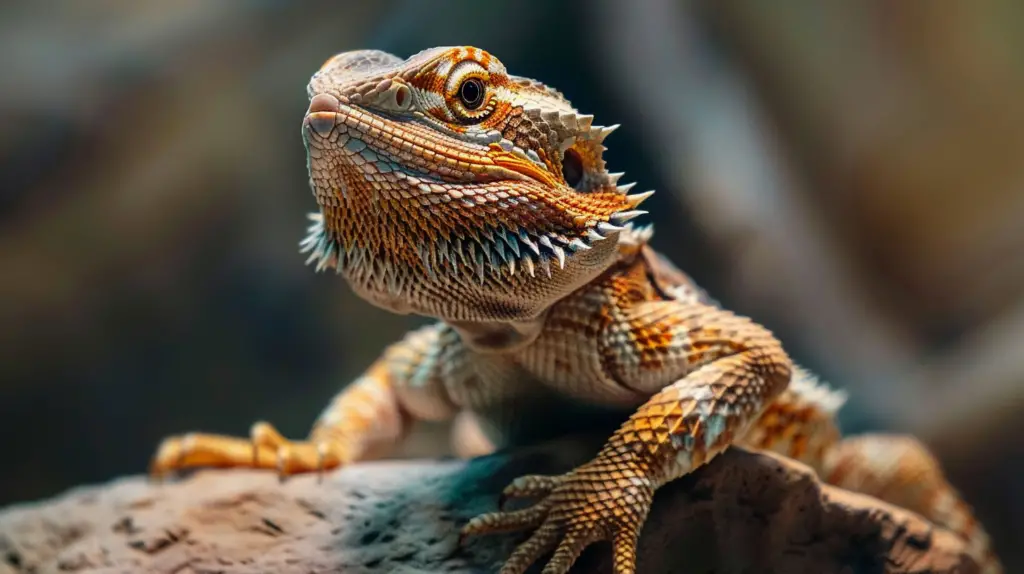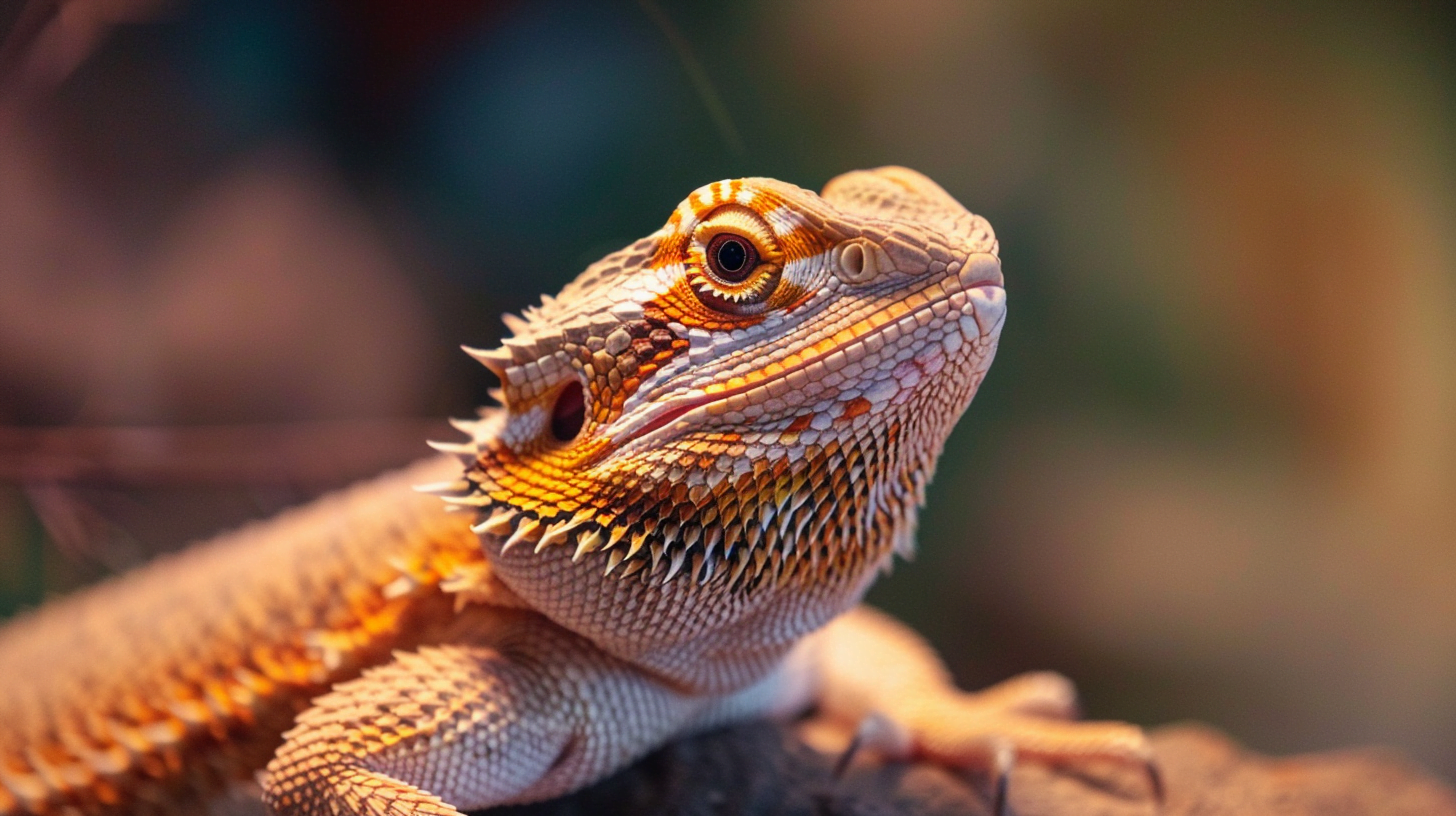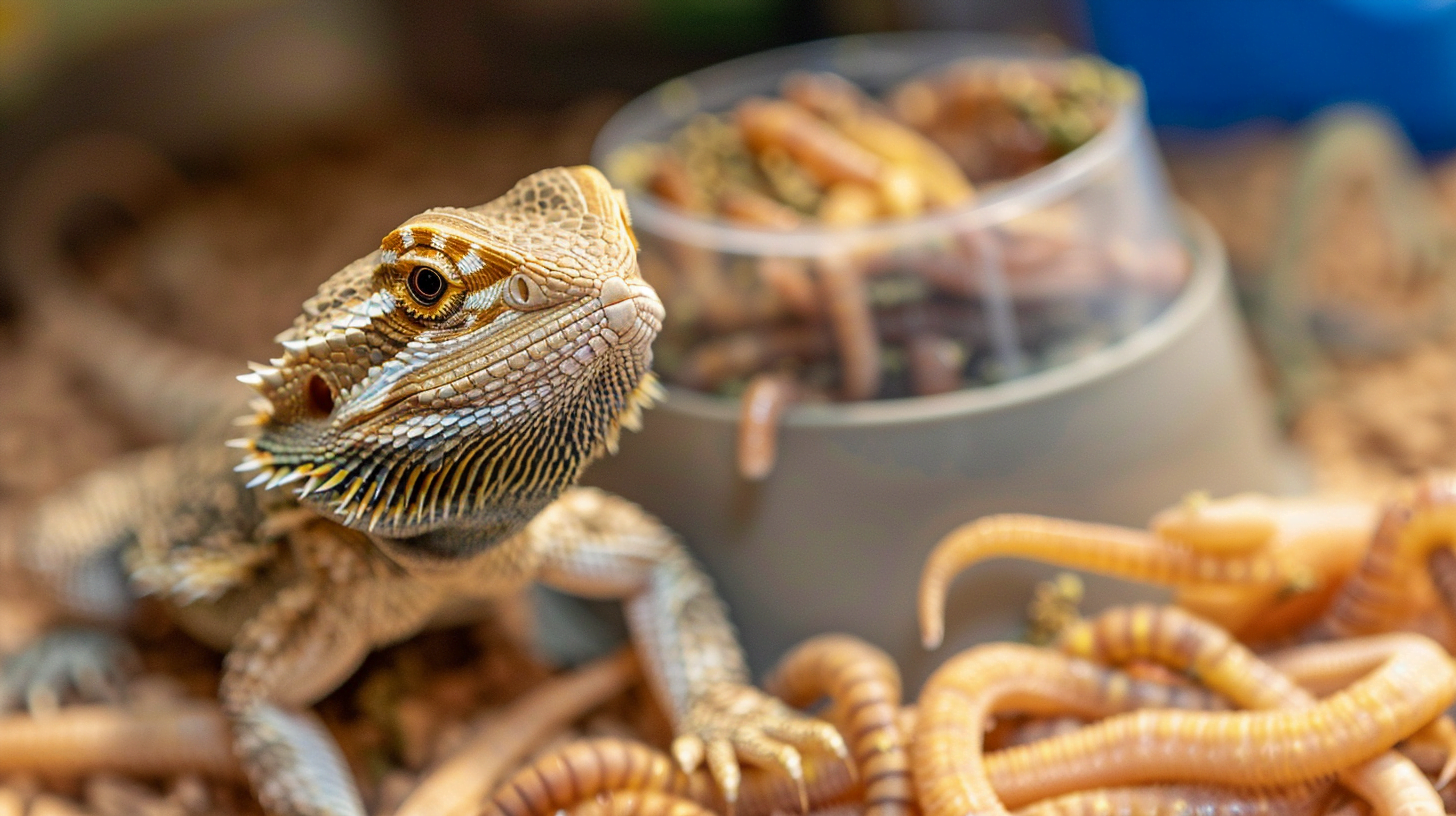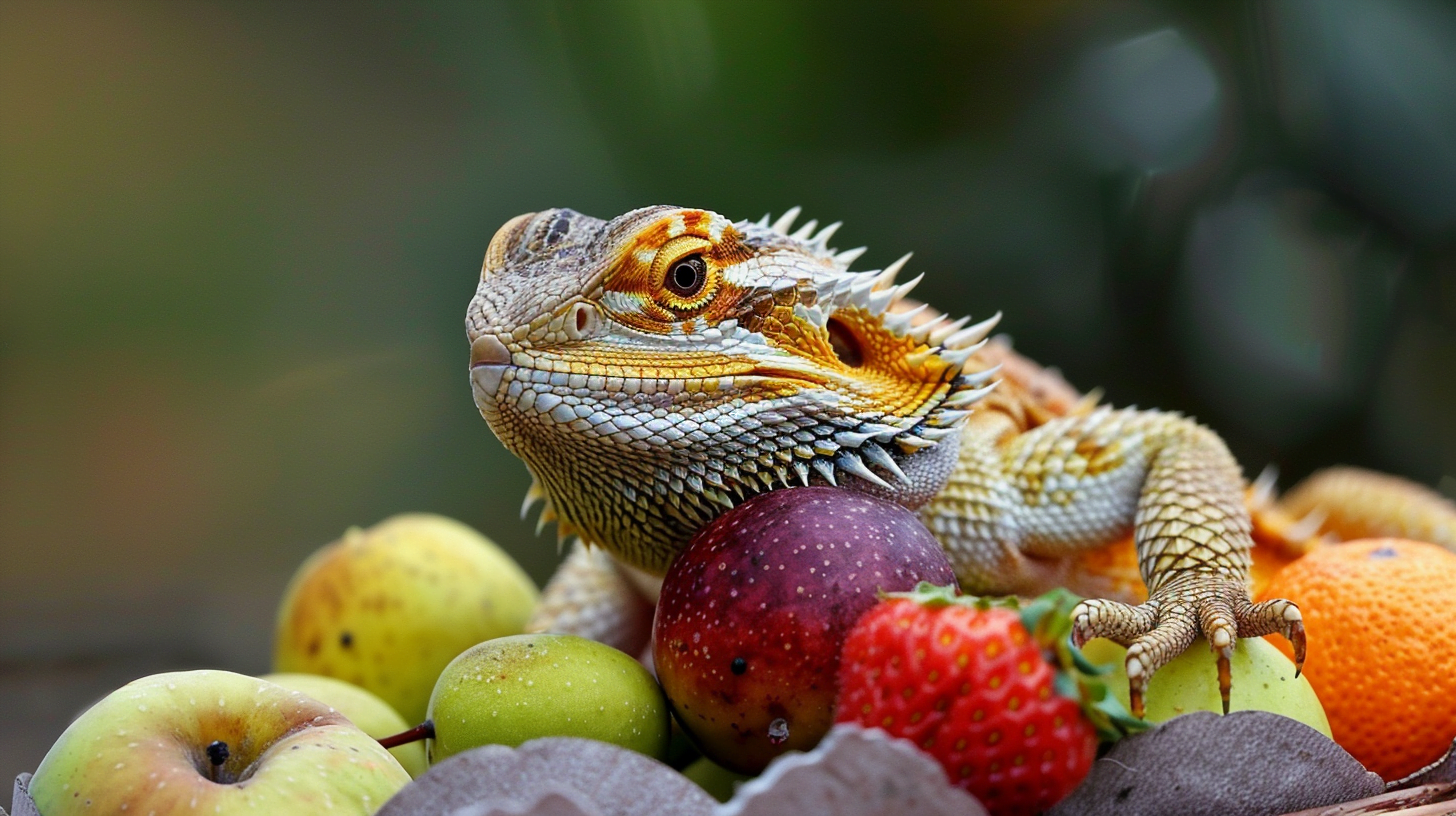Have you ever noticed your bearded dragon fixing you with an intense, unblinking stare? As the owner of one of these curiously reptiles, you may find yourself wondering – why does my bearded dragon stare at me? Their gazing behavior can seem quite perplexing at times.
An Innate Curiosity
Bearded dragons are naturally quite curious creatures. As you go about your daily business in their presence, they carefully observe and examine you. Sudden noises or movements are particularly fascinating. Their staring behavior is simply their way of gathering information about you and the environment you provide.Some signs your bearded dragon’s staring is out of harmless curiosity:
- Their head tracks your movements around the room
- They react to changes in your clothing/appearance by staring more intently
- Unusual behaviors on your part tend to pique their interest
You can test their curiosity by changing up your behavior and seeing how they react. Here are some suggestions:
- Play music and see if any genres intrigue them more than others
- Dance or wave your arms wildly to see if they track the motion
- Put on a funny hat, mask, or colorful clothing item – does it grab their attention?
- Make an unusual noise like a whistle or siren sound
Bearded dragons have excellent vision compared to humans, with over 300 cone receptors in their eyes to our mere 3. This allows them to see colors like ultraviolet and polarized light invisible to us. It also gives them better motion sensitivity – so keeping track of a moving target like their owner comes naturally.Take their staring as a compliment! It means you are a fascinating part of their landscape.
Recognizing You as Their Caregiver
With their excellent vision, bearded dragons are able to recognize human faces. As you go about the daily tasks of feeding, cleaning, habitat maintenance, and handling your bearded dragon, they begin to see you as their caretaker and provider. Their stare is likely just watching for your next move.Signs the staring is a form of recognition and trust:
- They make eye contact and hold your gaze
- They seem relaxed and comfortable in your presence
- Their stare intensifies around the usual feeding times
- They perk up when you enter the room or open their habitat
To strengthen your bond, be sure to provide your bearded dragon with:
- Favorite treats like hornworms or berries for rewarding good behavior
- Regular handling and cuddle time on your chest or under a light blanket
- Slow calculated movements and gentle handling to build trust
Never grab at your bearded dragon or force interactions. Let them have some control and choice to retreat if desired. Sit calmly and allow them to approach you instead.With time and positive reinforcement, you and your bearded dragon companion can become the best of friends! Those long thoughtful stares are them attempting to understand you and anticipate your routines.
Expecting Their Next Meal
Let’s face it, no one stares more intently at their owner around mealtimes than a hungry pet! For bearded dragons, the association between you and food is quite strong. Certain cues like entering the room, opening cabinets, or unlocking their enclosure can trigger intense anticipation of feeding.Clues this staring is food-related:
- Peak intensity around usual feeding times
- They rush to the front of their habitat when you open the doors
- Their stare follows you closely as you prep food in the kitchen
- You may notice enthusiastic head bobbing or arm-waving displays
To prevent excessive food-related staring:
- Maintain a consistent feeding schedule
- Designate a set feeding zone away from the main habitat area
- Avoid feeding directly from your hand, instead use a shallow dish
- Provide a variety of greens and vegetables to supplement live prey
With some discipline, you can teach your bearded dragon not to become a begging nuisance whenever you’re in the kitchen!
Assessing You as Friend or Foe
In the wild, an incorrect judgment about friend vs. foe could mean life or death. So some bearded dragon staring serves an evaluative purpose – they are carefully studying you and interpreting your body language to determine if you are a threat. Any unfamiliar sights, sounds, or smells can trigger an alert response.Signs they are cautiously assessing potential danger:
- They stare more intently when you first approach
- Your movements produce a tense or wary body posture
- Their beard turns black as they prepare for defense
- Quick retreat to a hiding spot if alarmed
You can earn their trust by:
- Giving them adjustment time before handling new arrivals
- Using slow, predictable movements around their enclosure
- Letting them initiate physical contact rather than grabbing at them
- Associating your presence with positive things like feeding and handling
With patience and care, you can teach your bearded dragon to see you as a trusted ally rather than something to fear. It may take many weeks or months for the more skittish ones to drop their guard completely, so let them set the pace.
Precision Basking
Bearded dragons are cold-blooded, so basking under heat lamps is critical for their metabolism, digestion, and overall health. Their staring might involve precision alignment to soak up just the right amount of warmth from their external light and heat sources.They also regulate body temperature by changing how much surface area faces the heat source and adjusting their distance from it. So all that staring helps with vital temperature calculations.Evidence this staring relates to basking/temperature regulation:
- The stare is focused directly on their heat lamp
- They repeatedly change their body orientation or tilt their head
- Their mouth may be open in a “gaping” posture to dissipate heat
- Moving closer to or further from the warmth as needed
Make sure their habitat supports healthy basking and thermoregulation:
- Provide a temperature gradient from 105-115°F in the basking zone down to 70°F on the cool end
- Use under tank heating pads in addition to overhead lamps
- Double check all heating elements for proper functioning
- Include some shaded hiding areas as well for cooling off
Proper temperatures are crucial for digestion, immune health, detoxifying UV light exposure, and maintaining appetite!

Visual Stimulation and Enrichment
In captivity, some staring behavior arises from boredom and lack of visual stimulation. In the wild, bearded dragons would spend hours roaming large territories watching for food and potential mates. So provide some entertainment!Ways to enrich their environment:
- Place habitat near a window for outside views
- Use a large enclosure with climbing branches
- Add safe plants and rocks to create complexity
- Provide substrates like reptile carpet or sand for digging
- Rearrange tank decorations weekly
Having new sights and some control over their surroundings can reduce aimless staring. A mentally engaged bearded dragon is a happy bearded dragon!
Communication and Bonding
Finally, those long thoughtful stares could just be your bearded dragon’s way of communicating with you and seeking your attention. Since building strong relationships and reading other dragons’ body language are so crucial in their society, they have an instinct to stare even at their human caretakers.So feel flattered when you get the stare! It likely means your bearded dragon is healthy, comfortable, and sees you as an important part of its world. Make eye contact back and talk gently to reassure them. With proper care and respect, the two of you can enjoy a strong bond characterized by mutual fascination!
In Summary…
To recap, main reasons your bearded dragon may stare intensely include:
- Natural curiosity about you, their environment, or unusual stimuli
- Recognition of you as their food provider and caretaker
- Anticipation of being fed around usual mealtimes
- Cautious assessment and monitoring for safety
- Precision alignment for optimal basking and thermoregulation
- Boredom and interest in more visual enrichment
- Attempts at communication and relationship bonding
So next time your bearded dragon looks you in the eye for a long period, think about what context clues their behavior and posture might provide. With time and observation, you’ll better understand what your dragon is “saying” with their gaze. And those moments of connection can be incredibly special.




